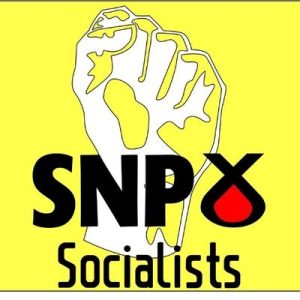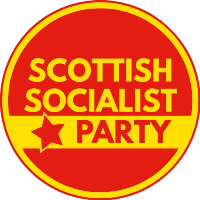With the local government election on 5 May 2022, we asked a number of left candidates from different parties to tell us why they are standing and what they hope to gain from doing so.
Each party was given 600 words to do so. Alba was given its opportunity in the Jan/Feb 2022 issue. Scottish Labour was asked and agreed to provide an article but it did not materialise.
Greg McCarra, Scottish National Party (SNP)
‘One more heave and we’re in government’ is the rallying cry of centre-left parties scenting power. Variants have been used by Liberals and Labour to achieved a bit of power for a bit of time … with most of their radical achievements being reversed later by the ‘natural’ return to the Conservatives in England. In Scotland, however, there has been a more social democratic consensus in place since the 1950s and devolution has acted as a slight defence against reversing radical policies. That might not last long, though, as the Tories seem keen to begin dismantling devolution, using Brexit as a pretext.
‘One more heave and we’re independent’ might look superficially like a similar argument to the above, but there is a difference. Different parties will always vie and alternate in their grasp for Westminster power. An independent Scotland stays independent. I have long believed that little of significance and durability is feasible in Scotland without independence. Employment law and most fiscal and economic powers will largely remain with innately conservative Westminster. Some may ask why I stay actively (and electorally) engaged in the SNP. Although constitutionally defined as a ‘left of centre party’, nonetheless, it strays frustratingly into territory which doesn’t fit well with that definition. 
I see us as being in a transitional phase. Most on the left see that independence is coming – trade unionists voted for it in 2014 – and we fully expect a realignment of Scottish politics and alliances after independence. This should certainly be the case at local government level where there is a bizarre dividing line which forces similarly-minded parties to tear lumps out of each other simply because of differing stances on the constitution (which is usually irrelevant to local government anyway). When first elected a councillor in 2007, I had hoped that STV would see Labour and SNP increasingly working together to create a combined, radical majority. Instead, we have seen Tories throughout Scotland being allowed a share of power and influence by Labour, simply to ‘defend the UK’. Sadly, this year is Independistas vs Unionists.
I am seeking re-election to West Lothian Council to help put into practice locally what I hope will become the norm nationally after independence: improved cooperation between progressive parties, allowing them to make – and sustain – the changes needed to help make Scotland a better country.
We have recently seen the starting of this at national level, with the Shared Policy Programme of the SNP/Scottish Greens Government. Very little detail of any party’s local government manifesto is currently available, but the Policy Programme hints at a few local opportunities for change, including: i) establishing a National Care Service: this will impact considerably on existing integrated joint boards for health and social care; ii) Just Transition: with the example of a ten-year £500m Just Transition Fund for the North East and Moray – areas where a replacement for the oil industry is needed; and iii) Transport: return to public ownership of Scotrail and new free travel entitlements – allowing transport to be seen as an essential service rather than just a business opportunity.
The starting point in bringing about independence is for the people to assert their ‘right to choose’ their future. It is not uncommon for larger countries to deny that right for smaller neighbours – Ukraine being a recent example – but those on the left must promote that fundamental right if they hope to see sustainable and progressive change. Waiting for Westminster to deliver that change is a forlorn hope.
Greg McCarra is a former EIS-University Lecturers Association President, former Convener of SNP’s Trade Union Group and an SNP councillor in West Lothian 2007-2017. He currently plays a leading role in several national pro-Independence organisations.
Bryan Quinn, Scottish Green Party
To me, local politics is the thing which has the largest day-to-day impact on a number of people’s lives. It impacts the schools your kids go to, the roads you drive on, your bin collections, the facilities you use and so much more. Often local elections do not get the same kind of coverage as national elections – which is unfortunate as this contributes to fewer voters turning up for local elections than national elections.
I grew up in Clackmannanshire, I went to school here and now I am living and raising my kids here. Politics for me has always been about making things better for everyone, not just the people at the top, as is often the case. I enjoy campaigning to try and make things better and by being a councillor it would allow me to have more influence over the kind of decisions that impact people’s daily lives. That is why I am standing as a Scottish Green candidate in these local elections. To put it simply: I want to make life a bit better for everyone. With my years of campaigning experience, and professional experience working in finance, I believe I have the expertise and skills needed to make a positive impact on the council. 
Local elections are about local issues. While some people use their vote to try and make a point about national issues, a lot of voters who I talk to on the doorsteps are focused on local issues and want a local person who can deliver results for them. Here in Clackmannanshire, we have some issues that people are extremely unhappy with. We are now the only council in Scotland that does not have a swimming pool, we have empty buildings, increasing energy costs and a council pension fund still invested in fossil fuels.
The council’s reactionary, and often lacklustre, solutions leave people wanting more. One recent example of this is that after the closure of the local swimming pool, with little provision in place, is to offer a temporary swimming pool costing more than £700,000 in the town hall car park. I have yet to talk to a single voter who is happy with spending this much money on such a solution and numerous people have brought up their dissatisfaction with the plan. Another issue we have is that the council sold a lovely listed building, Greenfield House, to a developer who sat and did nothing with it, only to buy it back again, in a much worse condition than before. On the doorsteps, it seems to me there is a feeling of staleness and lack of ambition in the council generally.
If I get elected, hopefully joined by some other Green councillors, there is a lot we want to achieve to challenge the status quo. We want to look at creating a district heat network in order to create local jobs, be more energy efficient and save people money on their bills. We want to build on our campaign to divest the pension fund and make it a reality. We want the community to be empowered by giving them a say over the future of great buildings we have now sitting empty, like Greenfield House, rather than letting them go to waste. We want people to feel like they have hard-working, accountable and transparent local representatives. We will do this by making a public record of organisations we meet, having council meetings broadcast for all to see and being the most accessible councillors on the council by holding regular surgeries in a variety of formats and times to suit people’s life circumstances.
Bryan Quinn is the Scottish Greens candidate for Clackmannanshire South Ward
Colin Fox and Bill Bonnar, Scottish Socialist Party (SSP)
Colin Fox: I am standing for election to Edinburgh City Council in the Liberton/Gilmerton ward on an anti-cuts programme that promises to oppose privatisation and extend public services instead. In 40 years as an activist, I have never once voted for cuts to public services or for privatisation. Edinburgh Council is currently run by a Labour/SNP coalition that has repeatedly cut essential public services and is widely seen as being more interested in promoting corporate vanity projects like the trams than serving the city’s working-class majority.
This is Scotland’s most ill-divided city. It has the least affordable housing in the country, yet a quarter of its pupils attend private schools that can charge £30,000 per annum. Liberton/Gilmerton, on the other hand, contains some of the city’s most disadvantaged communities. Both Edinburgh’s new flagship NHS hospitals are in the ward; the Royal Infirmary – privatised by Labour and the Royal Hospital for Children and young people sold off by the SNP. Like most citizens, the SSP wants to see both hospitals returned to public hands immediately.
Liberton/Gilmerton ward has also seen more Covid deaths than any other in Scotland – it has 6 nursing homes within its boundaries. The SSP uniquely advocates a National Care Service that is free at the point of need, publicly-owned and run with services fit for the 21st century.
I hope to win one of the four seats in the ward by enlisting the support of voters, activists, trade unionists and campaigners who agree with the programme I advocate. I hope in the process to encourage working class people in South Edinburgh and beyond to resist the political attacks raining down on them from the Tories, Holyrood and Edinburgh City Chambers. Edinburgh needs a socialist councillor more than ever. To get one people will have to vote for me. 
Bill Bonnar: I am standing for the SSP in the Glasgow Govan ward. As a parliamentary candidate I stood for the SSP in Glasgow South West including Govan in 2015 and have worked in the ward for many years. I stand on an unequivocal socialist programme and pose the question; if we had a socialist majority on Glasgow City Council: what would be our programme? This programme would include bringing the privatised bus services back into public ownership as a prerequisite for establishing a system of free public transport for the city. It would include replacing the unfair and inadequate Council Tax with a more progressive and effective Service Tax. It would involve a programme to reverse many of the cuts to services imposed on the city over the years and rigorous opposition to any future cuts. It would mean adopting a much more supportive and benign attitude to asylum seekers and refugees who have come to live in our city; none more so than in Govan.
Across the country the SSP is standing in several seats. As well as promoting a local agenda we also embrace a range of national policies towards our overall aim of an independent Scottish socialist republic. These include bringing many key industries such as the railways and the electricity and gas industries into public ownership, radical interventions to eradicate poverty and inequality and a Red Green New Deal to tackle climate change. Above all it is about demonstrating that Scotland needs a socialist party, and that party is the SSP. In these forthcoming elections, we will keep the red flag flying.